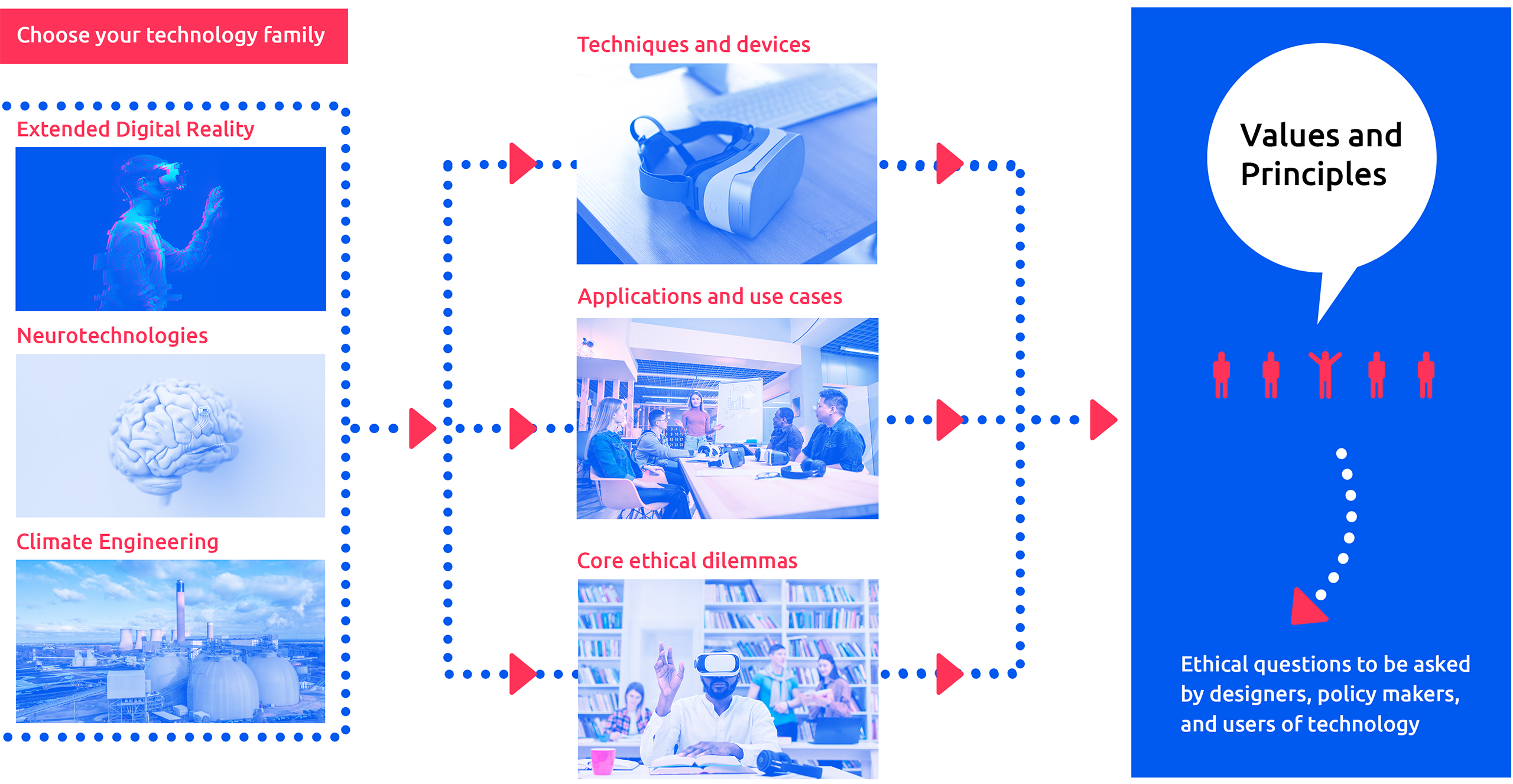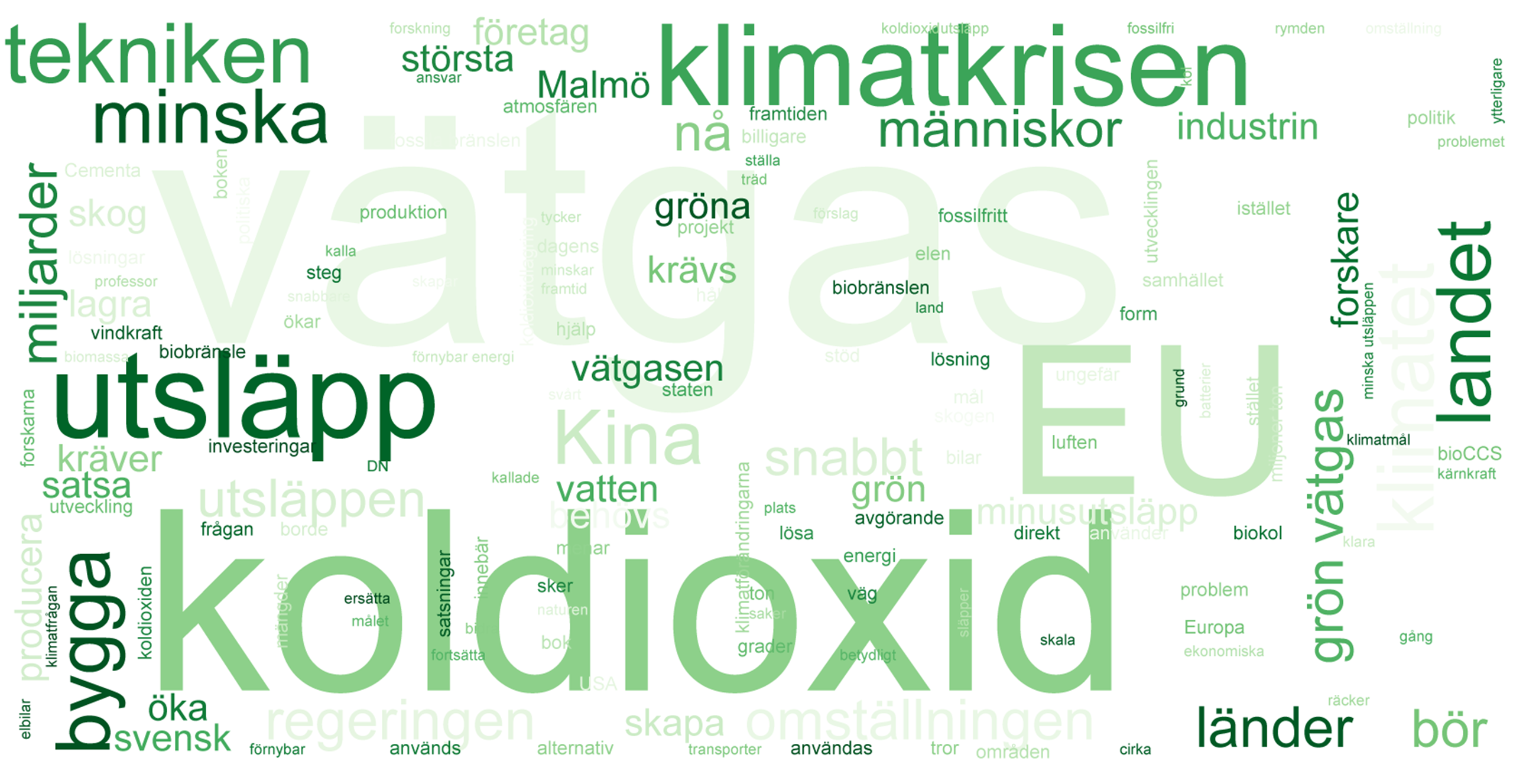Key findings highlight implications of new and emerging technologies
22 July 2022
Authored by: Cristina Paca
Reviewed by: Michael J. Bernstein and Anais Resseguier

New and emerging technologiesTechnologies whose development and application are not completely realised or finished, and whose potential lies in the future. [...] may generate a range of socio-economic benefits and new opportunities. Nevertheless, their transformative potential also means that these technologies are likely to pose a number of challenging ethical and societal issues.
TechEthos chose as its focus three technology families that concern fundamental relationships between technology and the planet, the digital world, and the human body: Climate Engineering , Digital Extended Reality and Neurotechnologies.
Now at the halfway point of this three-year project, the TechEthos consortium is delighted to publish three sets of key findings that enhance our understanding of the implications of our three technology families. These results lay a strong foundation for our future efforts: to develop operational ethical guidelinesEthical guidelines collect general or specific principles [...] More or codes that bring ethical and societal values directly into the early stages of technology development.
Arriving at ethical values and principles
Ethics by design’ is at the core of the TechEthos approach to the ethics of new and emerging technologies. This approach involves the inclusion of a broad array of human and environmental values from the very beginning of the process of research and development of new technologies by designers, entrepreneurs, researchers, users and policy makers. A new TechEthos report identifies a range of fundamental values and principles associated with the technology families to inform the projects’ ‘ethics by design’ approach and key stakeholders.
Several different roads were taken by our research team to arrive to the values and principles of each technology familyA technology family is a collection of technologies that share techniques that have common goals [...]:
- Looking at the specific techniquesA technique is a procedure for realizing a goal [...] More and devices that are characteristic of each technology family and questions they raise – for instance, Deep Brain Stimulation and Brain Computer Interfaces are both examples of Neurotechnologies techniques,
- Considering the key applications of the technologies, in areas such as training and education, social relations, medicine and diagnostics, among others, and
- Unravelling the arguments behind the core ethical dilemmas that have marked each technology family.

Three roads to arrive at values and principles. Illustration from the report ‘Analysis of Ethical Issues’.
Finally, for each value and principle identified and explained, the report outlines possible mitigating strategies and provides a set of questions that designers, policy makers and technology users might consider to reflect said values and principles.
In the media
Media both reflect and shape public perceptions on technologies and, as such, give important indications of these perceptions. A media analysis was carried out by the TechEthos project team in 13 countries, focusing on news stories from key online news outlets published in 2020 and 2021 and using state-of-the-art computational tools.
The media analysis allowed us to take the pulse of the media landscape in these countries and understand which technology families, specific technologies and ethical, legal and social issues received more widespread media coverage, and the nature of that coverage. In a majority of countries, Digital Extended Reality was the most discussed in news stories, especially through the prism of Virtual Reality. There were exceptions, such as Germany and Austria, where Climate EngineeringTechEthos defines climate engineering as a technology family which enables the modification of natural processes [...] More was a topical issue.

Word cloud on climate engineering news stories mentioning ethical, legal and social issues keywords, for Sweden. The top words in the cloud are ‘vätgas’ (hyrdrogen), ‘koldioxid’ (carbon dioxide), ‘EU’, ‘utsläpp’ (emission), ‘klimatkrisen’ (climate crisis), ‘minska’ (reduce). Illustration from the report ‘Results of media analysis’
The report also revealed that media representations of technologies were often linked, for better or for worse, to notable individuals and their initiatives. This was, for example, the case for Neurotechnologies, wherein 35% of the stories collected referenced Elon Musk and his company, Neurolink.
Legal issues in international & EU law
TechEthos has reviewed international and EU laws and policies for their relevance to our three technology families. While no comprehensive or dedicated laws were found to govern them, a number of legal frameworks do mark relevant obligations for nation states, as members of the international community or of the European Union, and give certain rights to private individuals.
To begin to identify the relevant legal issues, our research partners looked into a set of key questions – ‘What are the relevant objects?’, ‘What actions are done or not done?’, ‘Who is involved or impacted by the action?’ and ‘Where does the action take place?’.
Given the broad range of answers that each technology family implies, our recently published report touches on human rights law, rules on state responsibility, environmental law, climate law, space law, law of the seas, privacy and data protection law, consumer rights law, and the law related to artificial intelligence, digital services and data governance.
Private individuals and entities also face obligations from national legal frameworks in areas related to our three technology families. This is the subject of an upcoming report due later in 2022. The gaps and challenges in existing legal frameworks identified by this work will form the basis for our legal and policy recommendations which are expected in the final year of the project.
What’s next?
The three sets of results, complemented by further insights from our ongoing societal engagement actions, lay the foundation for the second half of the project when TechEthos will work on enhancing ethical guidelines and codes for people working in research and development in the area of our three technology families. They provide not just the technical building blocks of this work but also widen our perspectives on the role and framing of those guidelines.
